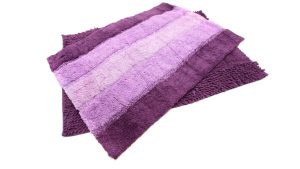To clean a rusty Blackstone griddle, start with a metal scraper and vinegar. Follow this with fine-grit sandpaper, rinsing, and thorough drying.
A well-maintained Blackstone griddle can be the centerpiece of outdoor cooking, but encountering rust can be a common issue, especially if left exposed to the elements. Tackling rust promptly ensures the longevity and performance of your griddle, keeping it ready for those impromptu barbecue sessions.
Cleaning a Blackstone griddle not only requires the right technique but also a bit of elbow grease and the proper maintenance tools. With a few simple steps, you can restore your Blackstone griddle to its former glory, making it safe and enjoyable for cooking delicious meals. Remember, regular upkeep not only prevents rust but also preserves the quality of your food and the joy of grilling.
Prep And Inspection
Assessing The Griddle Surface
Observe every inch of your Blackstone Griddle’s surface. Are there patches of rust or is it widespread? Judge the intensity of rust—this will help gauge the level of cleaning required. Crumbs, debris, and residual oil can also impact cleaning effectiveness and should be noted. Spotting early signs of wear and tear can prevent further damage.Gathering Necessary Cleaning Supplies
Having the right tools at the ready will streamline the cleaning process. Here’s a basic rundown of what you’ll need:- Metal scraper to gently dislodge larger rust flakes and debris
- Scouring pads or steel wool for scrubbing away the rust
- Vinegar and water solution (equal parts) for an eco-friendly cleaning mix
- Cooking oil for the re-seasoning step after cleaning
- Heat-resistant gloves to protect your hands
- Paper towels or cleaning rags for wiping and polishing
Dry Cleaning Techniques
Scraping Off Loose Rust With A Griddle Scraper
The first step in your dry cleaning process involves using a griddle scraper. This handy tool is essential for gently lifting and removing layers of rust without damaging the griddle’s surface. Remember to scrape in the direction of the griddle’s grain to avoid scratches.- Ensure your Blackstone griddle is cool and dry.
- Hold the scraper at an angle to maximize contact with the rusty area.
- Glide the scraper across the surface, applying consistent, moderate pressure.
- Continue scraping until you remove the loose rust flakes.
Removing Debris With A Wire Brush
After scraping, a wire brush becomes your next ally in the battle against rust. This tool is excellent for targeting stubborn rust patches and clearing away any residual debris. Its bristles reach into the smallest crevices, ensuring a thorough clean.- Choose a wire brush suitable for the griddle material to prevent damage to the cooking surface.
- Use firm, yet gentle strokes to brush across rusted areas.
- Regularly wipe the surface with a cloth to clear away loosened rust particles.
- Repeat the process until all visible rust and debris are eliminated.
Applying Cleaning Solutions
Choosing The Right Cleaning Solution
When it comes to griddles, not any cleaner will do. It’s paramount to opt for a solution that is effective against rust yet gentle on your griddle’s surface. Here’s what you need to consider:- Vinegar: A natural and economical choice, vinegar is acidic enough to loosen rust without causing damage.
- Commercial Griddle Cleaners: These are specially formulated to tackle tough griddle residue, including rust. Always ensure they’re compatible with your Blackstone griddle.
- Lemon Juice and Salt: For those preferring a more natural approach, lemon juice mixed with salt can act as an abrasive cleaner.
Applying The Solution To The Rusty Areas
Once you’ve got your cleaning solution ready, follow these steps to apply it effectively to the rusty areas of your Blackstone griddle:- Ensure the griddle is cool and safe to touch.
- Pour a liberal amount of the selected cleaning solution over the rusty areas.
- Spread the solution across the surface using a sponge or cloth.
- Allow the solution to sit for at least 5 to 10 minutes to penetrate the rust.
- For stubborn rust, use a non-metallic scrub pad to work the solution into the surface.
- Rinse the griddle thoroughly with water to remove any cleaning residue.
- Dry the surface completely to prevent new rust from forming.
Scrubbing And Refurbishing
Transforming a rusty Blackstone griddle back to its original glory involves two critical steps: diligent scrubbing and careful refurbishing. The process is straightforward but requires the right techniques and tools to achieve a rust-free surface without causing damage to the griddle’s integrity. Below are detailed instructions to guide you through this restoration journey.
Using A Non-abrasive Scrubbing Pad
Initially, equip yourself with a non-abrasive scrubbing pad specifically designed to tackle rust without scratching the cooking surface. Avoid steel wool or metal brushes as they can harm the griddle’s finish. Follow this step-by-step guide to remove rust effectively:
- Wipe down the griddle with a dry cloth to remove loose particles.
- Soak the non-abrasive pad with warm water and add a few drops of mild dish soap.
- Gently scrub the rusty areas using a circular motion.
- For stubborn rust, mix baking soda and water to create a paste, apply it to the affected spots, and let it sit for a few minutes before scrubbing.
- Rinse the griddle with water and dry it with a clean towel.
Restoring The Griddle’s Surface Sheen
Once the rust is removed, it’s essential to protect the griddle from future corrosion and restore the slick cooking surface. This part is about applying a fresh layer of oil that will refurbish your griddle’s sheen and re-season it for safe cooking. Here’s the orderly process:
- Heat the griddle slightly to open the pores of the metal, allowing better oil absorption.
- Apply a thin, even layer of high-smoke-point oil, such as canola, flaxseed, or vegetable oil, across the entire surface.
- Wipe the surface with a cloth or paper towel to remove excess oil, leaving only a light coat that shines without pooling.
- Increase the heat until the oil just starts to smoke, then turn off the griddle, allowing it to cool.
- Repeat the oiling and heating process 2-3 times to build up a protective seasoned coat.
Restoring the non-stick sheen not only enhances the griddle’s appearance but also elevates the cooking experience. Proper maintenance, including regular cleaning and oiling, will ensure your Blackstone griddle remains in top condition for years to come.
Post-cleaning Maintenance
Properly Drying The Griddle
Getting rid of every water spot is crucial to prevent your griddle from rusting. Begin by gently wiping off excess water with a clean cloth. If the weather permits, you can let the griddle sit under the sun for a more natural drying process. For quicker drying, turn on the griddle’s heat to evaporate any moisture. The heat should be at a low setting for about 3 to 5 minutes. Once the surface is completely dry, switch off the griddle and allow it to cool down. Never store the griddle while it’s still damp; always ensure it’s thoroughly dry before putting it away.Applying A Thin Coat Of Cooking Oil
Following the griddle’s drying, the next vital step is to apply a thin layer of cooking oil. This layer acts as a barrier against oxygen and moisture, keeping rust at bay. Reach for a high-smoke-point oil such as canola, flaxseed, or vegetable oil for the best result. Put a small amount on the griddle surface and use a paper towel or a dedicated cloth to spread the oil evenly, making sure to cover every inch. Please turn on the griddle to a low heat setting, and let the oil bake on the surface until it stops smoking. Cool down the griddle afterward, creating a smooth, non-stick layer perfect for your next cooking session.Frequently Asked Questions On How To Clean A Rusty Blackstone Griddle
How Do You Get Rust Off A Blackstone Griddle?
To remove rust from a Blackstone griddle, heat it, then scrape off the rust with a metal spatula or griddle scraper. Wipe the surface clean with a cloth, re-season by applying a thin layer of cooking oil, and heat until it smokes.
Repeat oiling and heating as needed. To Clean a Rusty Blackstone Griddle.
Can You Still Cook On A Rusted Blackstone?
You can cook on a rusted Blackstone after removing the rust and reseasoning the griddle to restore its non-stick surface.
How Do You Restore A Blackstone Griddle?
Heat your Blackstone griddle on high for 20 minutes. Apply a thin layer of cooking oil to the surface. Once the smoke ceases, turn off the griddle. After it cools, wipe it down with a paper towel. Repeat the oiling and heating process a few times for best results.
How Do You Deep Clean A Blackstone Griddle?
Heat your Blackstone griddle on high for 15-20 minutes. Use a metal scraper to remove debris. Pour water onto the hot griddle and scrub with a griddle brush or stone. Wipe clean with paper towels. Apply a thin layer of cooking oil to protect the surface.
How often should I clean my Blackstone griddle to prevent rust?
A1: It’s recommended to clean your Blackstone griddle after each use. This routine maintenance helps prevent the buildup of grease and moisture that can contribute to rust formation.
Can I use any type of cooking oil for seasoning my griddle?
Yes, you can use various cooking oils for seasoning your Blackstone griddle. Popular choices include vegetable oil, canola oil, or flaxseed oil. Ensure to apply a thin, even layer to protect against rust.
Is it necessary to remove the rust immediately, or can I do it later?
While prompt rust removal is ideal, it’s not always urgent. However, the longer you leave rust unattended, the more challenging it can be to clean. Address rust as soon as possible to prevent it from spreading.
What should I do if the rust on my griddle is extensive?
For extensive rust, consider using a rust converter spray after the initial cleaning steps. This product helps transform rust into a stable surface and is particularly effective for severe rust issues.
Can I use abrasive materials like sandpaper for rust removal?
It’s advisable to avoid abrasive materials like sandpaper, as they may scratch and damage the surface of your Blackstone griddle. Opt for non-abrasive options such as a wire brush or steel wool.
How long does the seasoning process take, and how often should I do it?
The seasoning process typically takes about 15-30 minutes. Aim to season your griddle after each cleaning or when you notice the protective layer diminishing. Regular seasoning helps maintain the griddle’s non-stick surface.
Are there any eco-friendly rust removal methods?
Yes, using a vinegar soak is an eco-friendly rust removal method. Vinegar’s acidity aids in breaking down rust without harmful chemicals. Combine this with baking soda for a natural and effective rust-removal paste. To Clean a Rusty Blackstone Griddle.
Can I use a power washer to clean my Blackstone griddle?
A8: While it’s tempting, using a power washer is not recommended for cleaning a Blackstone griddle. The forceful spray may damage the griddle’s surface. Stick to gentle cleaning methods like brushes and sponges.
To Clean a Rusty Blackstone Griddle.
Conclusion
Keeping your Blackstone griddle rust-free ensures longevity and quality cooking. Embracing these simple cleaning steps will help maintain its pristine condition. Remember, regular care with appropriate tools and methods pays off. Now, it’s time to fire up that griddle and enjoy flawless outdoor cooking adventures! To Clean a Rusty Blackstone Griddle.






